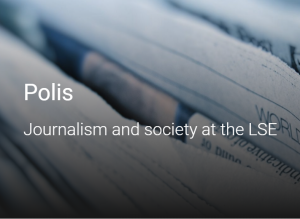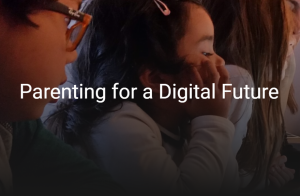Guidelines for contributors
We actively seek contributions (up to 1000 words) relating to media and communications research. Contributions to the blog are neither academic papers nor bureaucratic publications. Nor should posts be a mere description of a particular issue, but should offer evidence-based analysis and commentary.
The best posts typically have the following elements:
- Relevance – A clear link to a topical issue, decision or institutional consultation.
- Research – A new piece of research evidence, or reference to an academic debate or theory that is relevant to current issues.
- Relaxed style – Blogs tend to be direct and informal in order to be accessible to a wider audience.
- Reading further – Abundant links to additional sources and useful evidence.
We welcome contributions that discuss current issues that are relevant to the field of media and communications, and occasionally we may request that authors rewrite articles to provide additional research or a novel evidence-based conclusion. Posts that cover events should focus on what key points, findings or arguments are most useful to take away from the event, whilst taking account of applicable Chatham House rules. The goal of covering events is to share with a wider audience how an event moved debate forward, rather than to just report that an event happened.
Writing style and language
- As with journalistic pieces ‘lead with the best.’ Don’t save your main argument or analysis for the end of the post.
- Write your article as a standalone piece, even if it summarises material in a longer paper or journal article. Try to present all of your argument and evidence within the text and avoid relying too heavily on information contained in external sources. Avoid phrases such as “in my recent paper, I have shown that political pollsters tend to get it wrong…” and simply say “Political pollsters get it wrong for these reasons…” Remember that many journal articles are behind a paywall and not all readers will have access to them.
- Do not use jargon, acronyms and technical abbreviations.
- Write in everyday language – posts should be easily understandable by an informed, non-expert public audience.
- Use bullet points to highlight or summarize key points.
- Don’t assume prior knowledge from your readers, write your post as a stand-alone piece.
- Ensure your post has a clear conclusion – a strong statement, provocation or question.
Links
- Use links rather than citations for references. Links should direct readers to more detailed reports or other pieces of research, news items or other blog posts. Open access sources are preferable compared to those behind paywalls.
- Provide evidence for your claims, linking to source material.
- Please hyperlink key words in your text to direct readers to additional context and research (e.g. reports, policy documents, academic research, news items, other blog posts etc.). Where possible link to open access sources.
- Please do your best to only link to sources you trust and please do not link to objectionable videos.
- We appreciate if you can link to previous posts from our site, where relevant.
Review and editing process
- Articles will be reviewed by members of the Media@LSE editorial team who may edit the piece to enhance readability by a wider audience.
- Edits may include shortening or summarising of text.
- We will add a short introduction that includes the post’s author with affiliation, and the main argument or key findings, along with a thumbnail photo of the author (optional).
- We strive to maintain clear communication with authors during the editing process and may request prompt follow up clarification or approval.
Creative Commons and article sharing policy
All of our articles are published under a Creative Commons licence (CC BY-NC-ND 2.0) and other publications are free to republish them, with attribution. If you do not wish for your article to be republished anywhere else, please let us know. Otherwise, we will assume your permission is granted for re-posting.
Further guidance
See this post from the LSE Impact blog on how to write a blog post in 11 easy steps.
Please email Emma Goodman, editor of the Media@LSE blog, if you would like to pitch an idea for a post.




